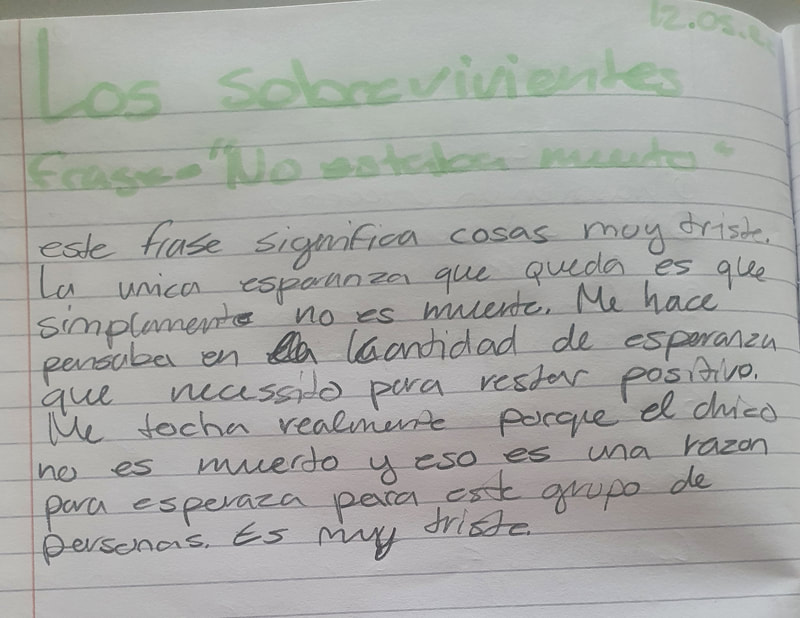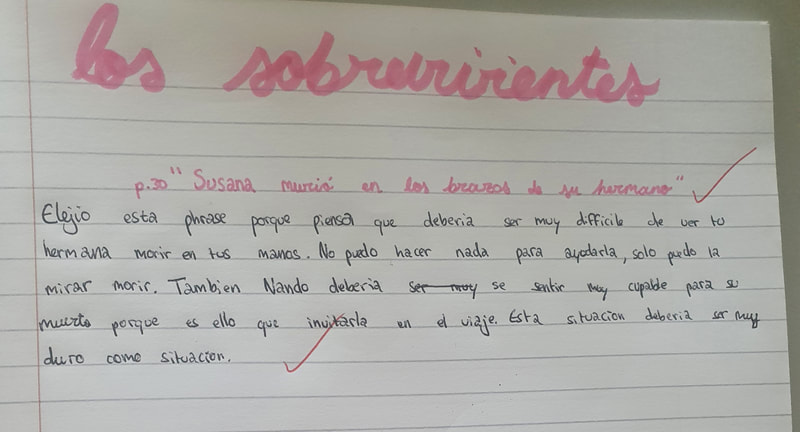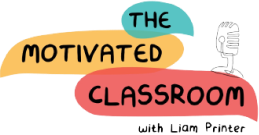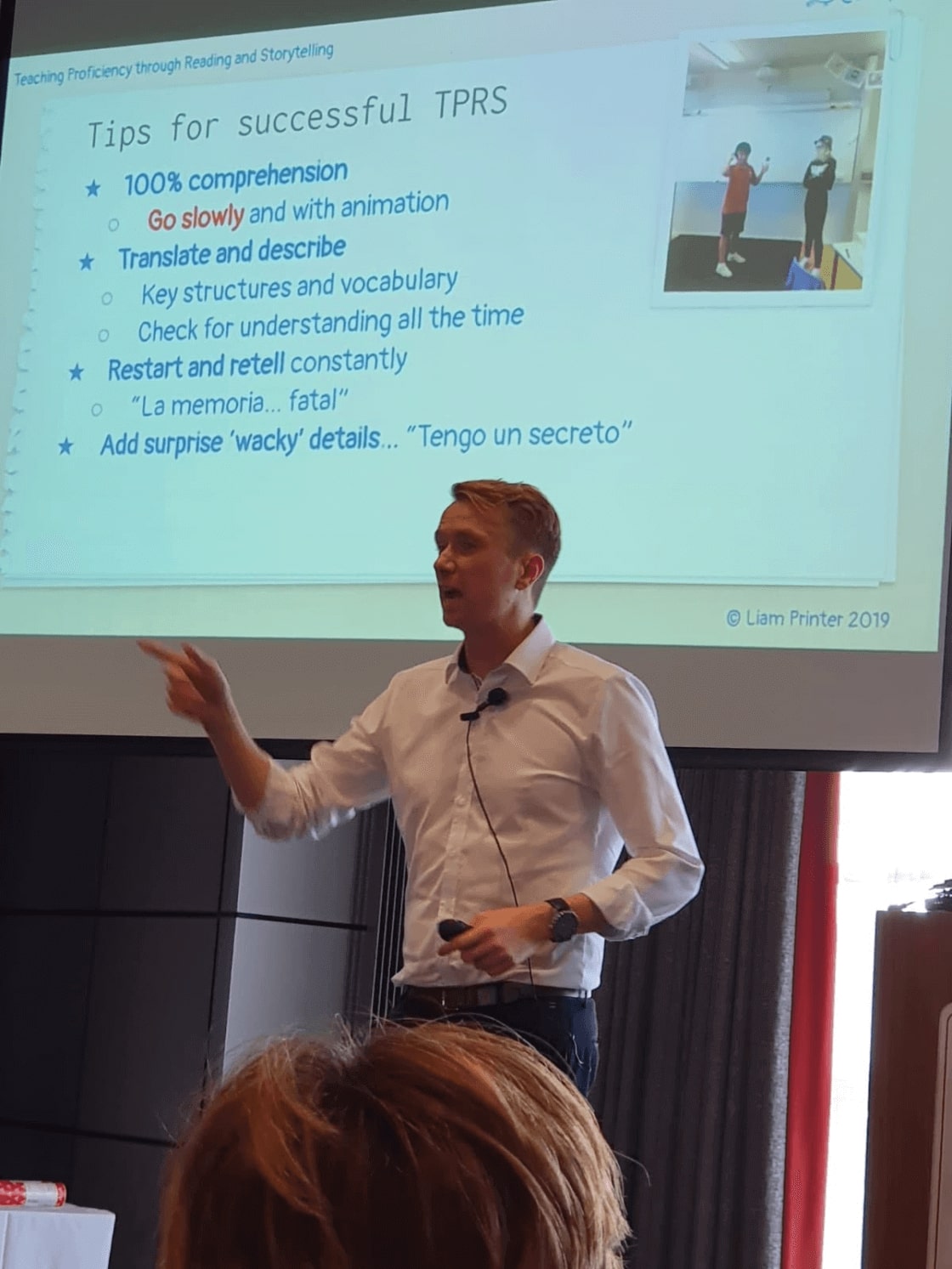My Year 9 class are now 4 weeks from the end of our second year together. The students are aged 12-13 and have had approximately 2 hours Spanish per week, minus all the school holidays of course. In those two years we have read 6 class novels and they've each read 10-20 other graded readers during their free voluntary reading time at the beginning of class. Since around 4 months into year 8 (their first year of Spanish), we have started almost every class with 5-10 minutes of silent reading. We don't have a textbook
In the two years, we've never 'done' or 'practised' a verb table. We have looked at one, after a student asked about the endings. We've maybe done two worksheets total across the two years that had a focus on accuracy. They have had plenty of pop-up grammar explanations about the differences between "comió" and "ha comido" for example. We don't do lists of vocabulary or regular high-stakes testing.
We have never done anything about the conditional tense; I've never (explicitly) taught them 'debería, sería' etc... but they are using it in their writing. Below are some of their most recent entries in their "Diario de Lectura". These entries are mostly done in class, with no dictionary or computer. Just free writing.
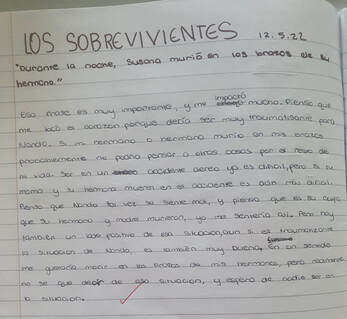
Diario de Lectura entries are done regularly based on phrases they connect with from books we are reading. I never correct any mistakes in their 'diario de lectura'. I do correct 2-3 critical errors when they are doing a formative writing piece before a summative assessment, but this is separate. In the diario de lectura, they know they can write without fear of being wrong. They know it is a conversation in writing between me and them.
And the clincher... hand on heart, these students allspeak more fluently and arguably with more accuracy than they write. I'll share recordings of our final round table discussions at the end of the school year.
Flooding students with compelling, interesting, and most importantly, comprehensible inputs that centre on narratives and stories from our lives, our identities, our passions, our fears and our cultures... works. It allows children to acquire language naturally; to learn about each other, about me and about the world.
Reading... lots of reading, works. The books allow us to regularly discuss big themes, important topics and social justice issues... and, it results in so much fantastic, impressive and fluent output.. both in writing and in speaking. Remember Grant Boulanger's mantra "The less you force them to speak, the more they want to speak".
In Year 3 next year we will start to look more closely at grammatical accuracy, at writing and speaking for different audiences, in different tones. But not before. Remember, they need to build the system first; before they can start to look more deeply at the components of that system.
Trust the process, trust the research, trust your students. Acquisition doesn't happen overnight but keep giving the rich, comprehensible inputs and it will happen. Leer es poder!
